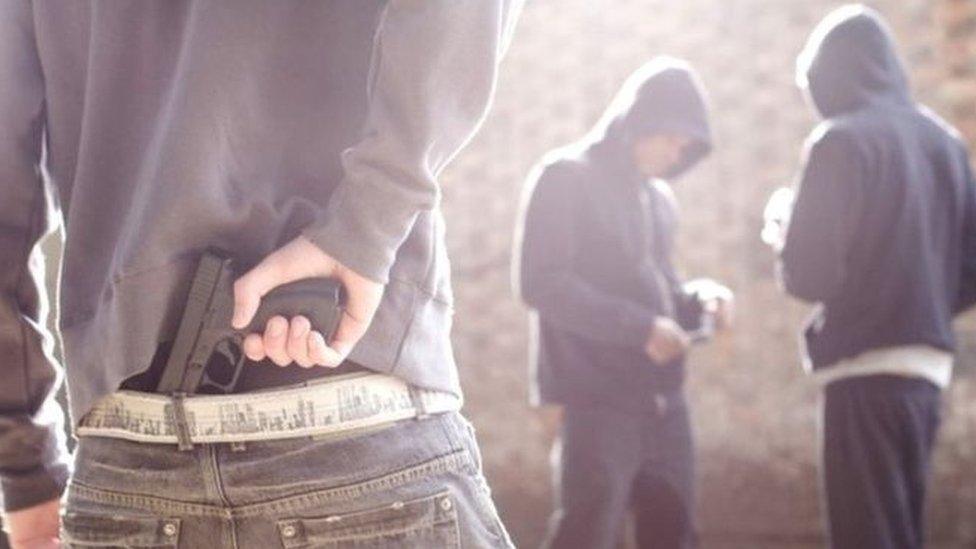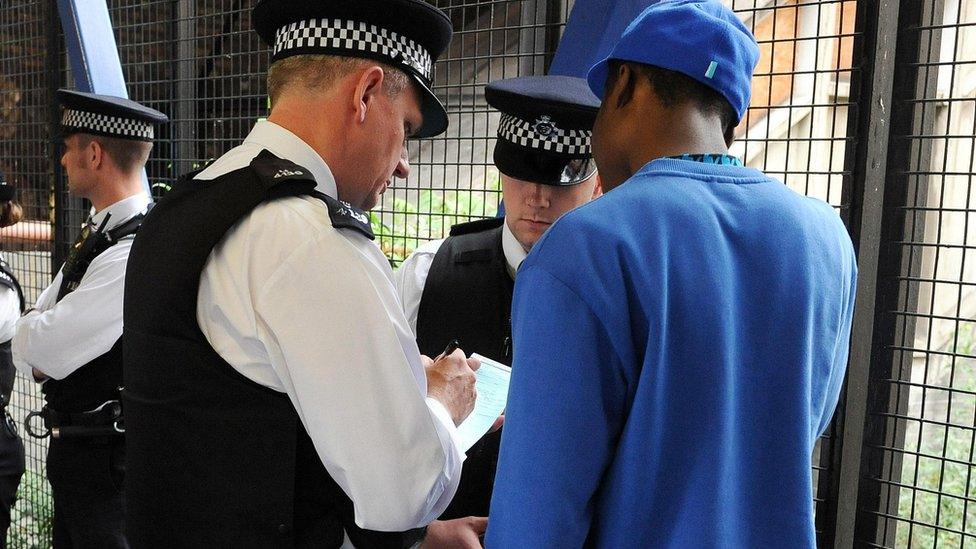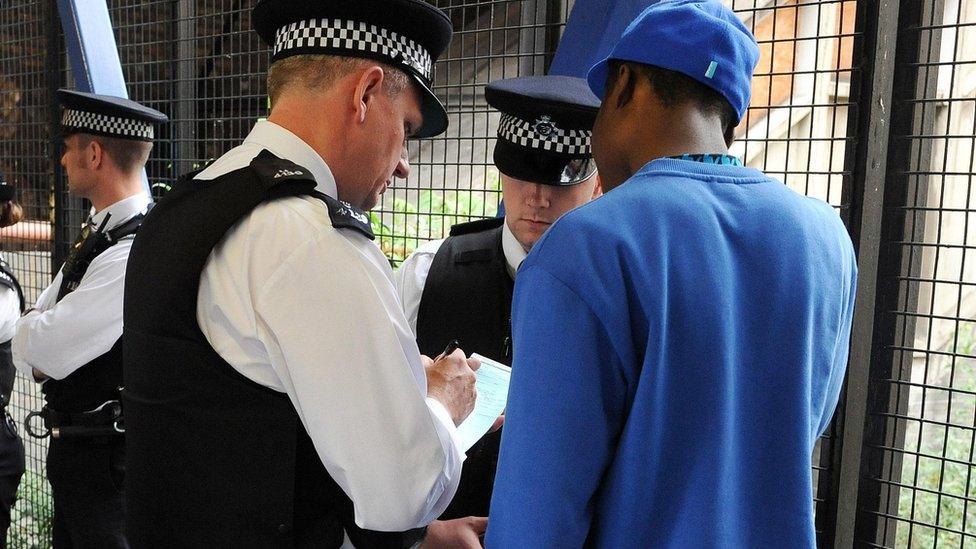Met Police gangs matrix at lowest levels in seven years
- Published

The database was set up following the 2011 riots
The Met Police's gang matrix has been cut to its lowest level in seven years, London's mayor has revealed.
More than 1,000 young black Londoners have been removed from the database since a review was commissioned by Sadiq Khan in 2017.
Mr Khan said the matrix was "necessary" but those "who should not have been on it have now been removed".
The Conservatives said Londoners would be "concerned" the mayor "was removing checks from... potential gang members".
The matrix, external was set up after the 2011 riots to identify those who were at risk of committing, or being a victim of, gang-related crime in the capital.
However, issues with the database were identified by the Information Commissioner and the mayor called for an overhaul of the system.
Human rights groups such as Amnesty International have also called it "racially discriminatory", saying the system "stigmatises young black men" with about 80% of those on it from minority ethnic groups.

Oliver Feeley-Sprague, an Amnesty International spokesman, said: "We welcome the efforts made by both the Met police and Mayor of London to reform the Gangs Matrix.
"The Matrix still has many of the hallmarks of a seriously flawed and discriminatory policing tool used to unfairly target young black men - something that can only lead to greater mistrust of the police among affected communities."
At its peak in August 2017, 3,811 people were included on it. There are now 2,305 individuals, a 10% cut on this time last year.
There has also been a large fall in the number of under 18s on the matrix, from 493 in 2018 to the current number of 146.
According to analysis from City Hall and the Met, the majority of those cut had "very low rates of offending and victimisation levels in the year before and the year after being removed".
Mr Khan said the matrix had become "more transparent, effective and more evidence based" since the review, to help improve trust in the Met.
However, he added that "gang-related violence still accounts for a significant proportion of the most serious violence in London and the matrix is a necessary enforcement tool as well as a means to support and intervention".
Susan Hall AM, leader of the Greater London Authority Conservatives, said Londoners would be "rightly concerned that while violent crime soared to record levels, Khan was removing checks from more than a thousand potential gang members".
She called for checks to be put in place "to flag any crimes committed by those removed from the list to ensure the new system is effective".
- Published15 February 2020

- Published21 December 2018

- Published6 December 2018

- Published16 November 2018
- Published16 August 2018

- Published26 July 2018

- Published9 May 2018
